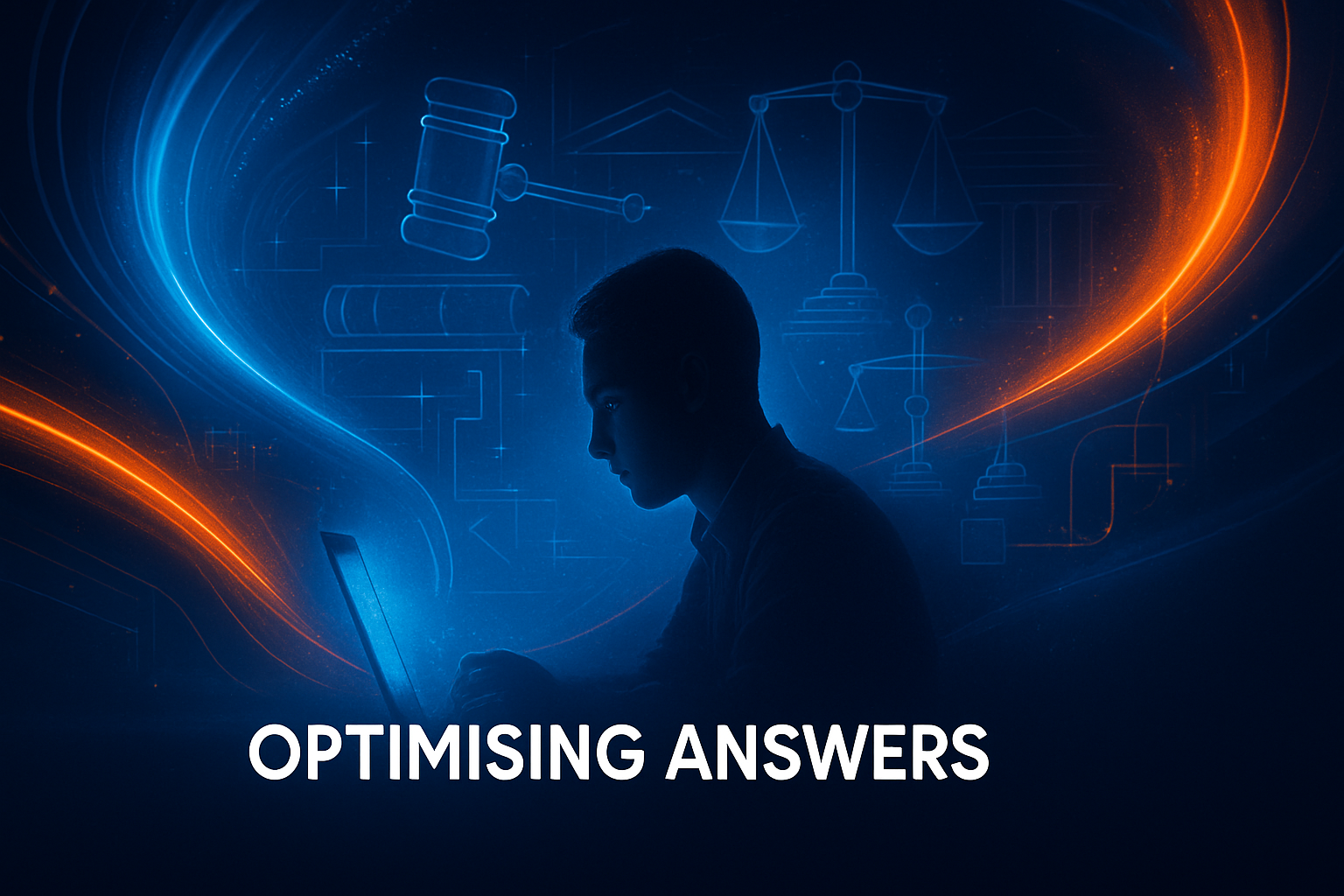
Small Law Firms Are Beating Big Budgets
The phone stopped ringing three months ago.
Your beautifully crafted blog posts still rank on page one. Your keyword strategy looks flawless on paper. But potential clients aren't calling.
I've been watching this play out across legal markets for the past 18 months. Traditional SEO is dying, and most firms haven't caught on yet.
The culprit? Answer Engine Optimization.
AI Search Changes Everything
Here's what's happening behind the scenes. Over 60% of search queries now generate AI-powered answers that don't require clicks to your website.
ChatGPT, Perplexity, and Google's AI Overviews scan for precision, structure, and authority over content volume. They reward clear, well-formatted answers that directly match questions.
Think FAQs, plain-language explanations, and trusted sources; not 2,000-word keyword-stuffed articles. If your content sounds like it came from a marketing intern rather than a seasoned attorney, it quickly gets side-lined.
The Boutique Firm That Cracked the Code
One of my favourite examples is a two-partner construction dispute firm that figured this out early. Instead of chasing generic "construction lawyer" keywords, they built ultra-specific Q&A pages. Questions like "What happens if my contractor abandons the job site in Cape Town?"
Each answer was under 300 words, led with the conclusion, and backed by real case experience. No dramatic legal build-up.
Within months, they owned the snippet results for dozens of hyper-local, high-intent searches. Meanwhile, national firms with massive budgets were still fighting over broad keyword rankings.
The boutique firm wasn't just writing for search engines. They were pre-packaging their expertise so AI could lift it straight into answer boxes.
Why Thought Leadership Is Your AEO Secret Weapon
Here's what that firm really discovered: AEO rewards the same qualities that make great thought leadership.
Every LinkedIn post where you break down a recent case development. Every blog article explaining new legislation in plain English. Every video where you walk through a common client scenario. This isn't just content—it's expertise made accessible. And that's exactly what AI systems are hunting for.
The difference is strategic packaging. Instead of writing a 1,500-word thought leadership piece about "Recent Changes in Construction Law," create five focused posts answering specific questions: "Can I fire my contractor for delays?" "What's the new lien law mean for homeowners?" "How do I protect myself from contractor fraud?"
Same expertise. Same authority. But now it's structured for how people actually search—and how AI actually answers.
The Mental Hurdle Most Lawyers Face
The biggest challenge I see is lawyers letting go of their Supreme Court writing instincts. Legal professionals are trained to be exhaustive and hedge every statement with disclaimers. This shows up everywhere—from 3,000-word blog posts that take forever to get to the point, to LinkedIn articles buried in legal jargon.
But here's the irony: lawyers already have the best thought leadership material sitting in their case files. They just package it wrong. That complex merger you just closed? Don't write "Navigating the Complexities of M&A Transactions." Write "5 Things That Kill Merger Deals (And How We Saved This One)."
That employment dispute you resolved? Skip "Understanding Workplace Harassment Claims." Try "What HR Gets Wrong About Harassment Complaints."
The solution is simple: Open with your closing argument, then fill in the fine print for those who stick around. Your thought leadership should feel like legal advice, not legal academia.
Why This Levels the Playing Field
Here's the game-changer: 75% of small law firms report struggling to compete with larger competitors online.
AEO flips this dynamic completely.
When AI systems prioritize relevance and clarity over content volume, smaller firms with niche expertise can surface alongside national players. Without spending six figures on SEO.
The race isn't to the loudest marketer anymore. It's to the most useful lawyer.
The Strategic Shift That Changes Everything
Stop thinking like a marketer trying to "rank" and start thinking like a lawyer trying to win trust in 30 seconds.
Every piece of content should answer one real client question so clearly it could stand alone without context. This mindset shift forces you to strip out fluff, ditch the ego, and lead with value instead of visibility.
Once that becomes your default approach, the technical AEO tactics fall into place naturally.
What Comes Next
As more legal professionals catch onto AEO basics, the real edge will come from proof over promises.
AI platforms will increasingly favour content tied to verifiable experience. Case studies and first-hand commentary over generic advice. The firms that can humanize their expertise with stories, data, and consistent voice will stand out in a sea of technically correct, but soulless answers.
The lawyers who bring receipts—through authentic thought leadership—will take the lead. Your LinkedIn posts about industry changes. Your blog insights on new regulations. Your video explanations of complex legal concepts. This isn't just content marketing anymore. It's your competitive advantage in an AI-driven search world.
Thought leadership has become the bridge between your expertise and AI discovery. The firms that master this connection won't just survive the AEO shift—they'll dominate it.
Given that every $1 spent on SEO returns $22, the firms that adapt to AEO now will dominate their markets while competitors wonder why their phones stopped ringing.

